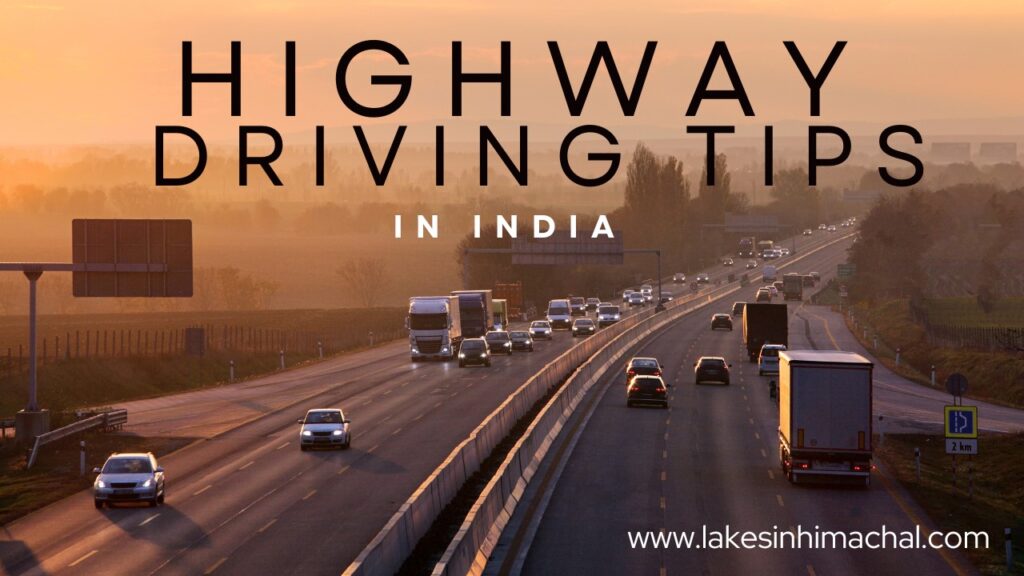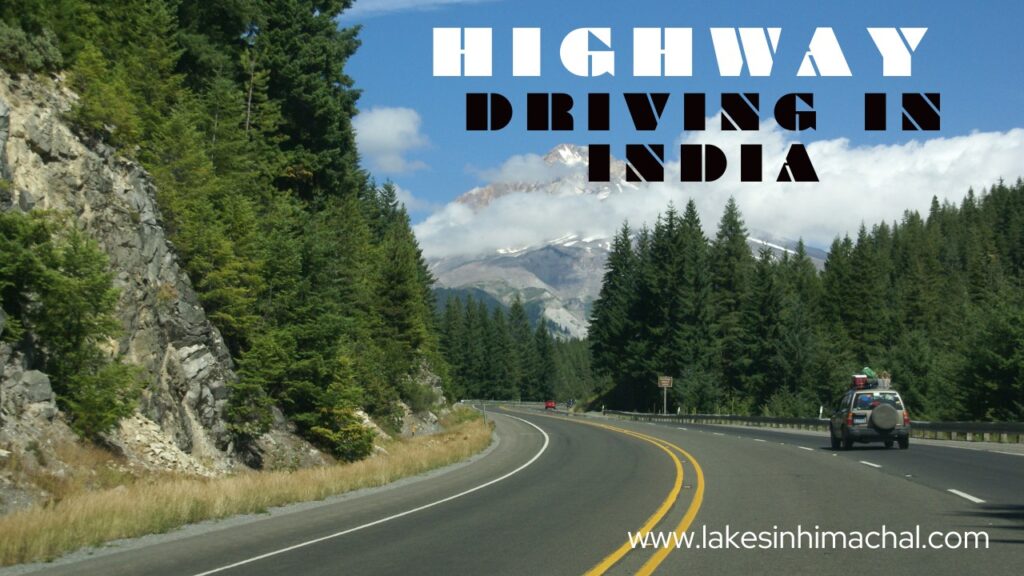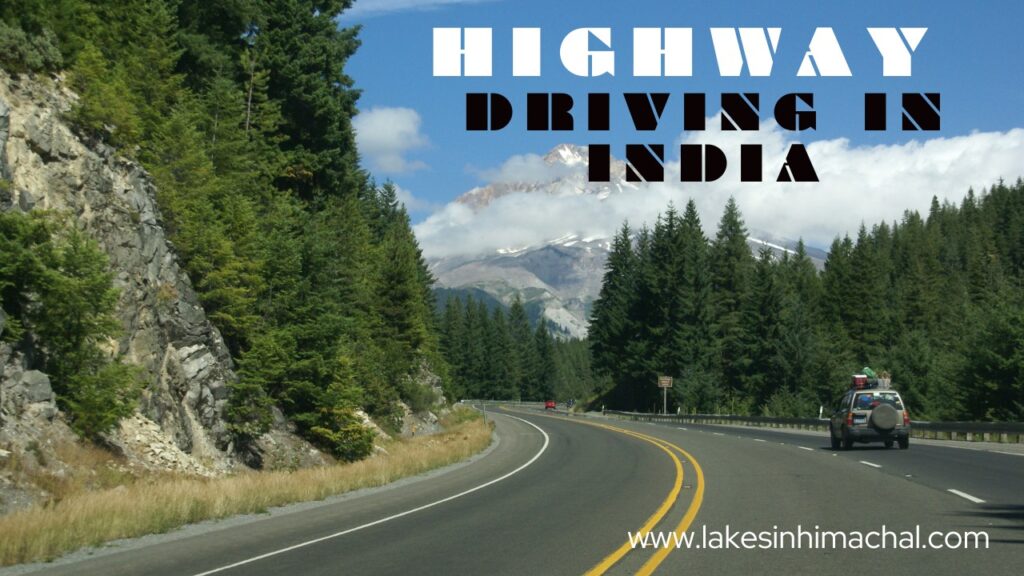Planning a long trip on Indian highways? Driving on highways can be both exciting and challenging, especially in a country as diverse as India. To ensure a safe and enjoyable experience, it’s important to equip yourself with the necessary knowledge and skills. In this article, we’ll provide you with some important highway driving tips in India to help you navigate the roads safely.
Table of Contents
ToggleFollowing Traffic Rules
Driving on Indian highways requires great attention and adherence to traffic rules. It’s important that you’re prepared and familiarize yourself with the peculiarities of Indian highways to ensure a smooth ride. These tips can minimize the risks and make your trip more enjoyable.
Overview of driving on highways in India
Indian highways vary in terms of road conditions, traffic density and environmental factors. If you understand the landscape, you can adjust your driving style accordingly.
Preparations for the trip
Before embarking on a highway trip, be sure to make these necessary preparations to ensure a smooth ride.
Check Vehicle
First, make sure your vehicle is in optimal condition. Check the brakes, tires, engine oil and other important components. A well-maintained vehicle is less likely to have problems on the road.
Route Planning
Plan your route in advance and familiarize yourself with the directions. Make note of petrol stations, rest stops and important landmarks along the way. Google navigator, however, takes care of routes and directions.
Pack the essentials
Pack essentials such as a spare tire, jack, tool kit and emergency supplies. Also take necessary documents such as your driver’s license, vehicle registration and insurance.
Highway Driving Tips : Safety Precautions
Safety should be a top priority when driving on Indian highways. Defensive driving and following traffic rules can help avoid accidents.

Safety over Speed
Keep a safe distance from the vehicle ahead, anticipate potential risks, and always be prepared to react. Avoid aggressive driving maneuvers and prioritize safety over speed.
Obey traffic rules
Obey traffic signs, speed limits, and lane rules. Avoid passing from the left and use your turn signal when changing lanes. Following simple rules helps traffic flow more smoothly.
Maintain Speed and Distance
Maintain a moderate and safe speed that is appropriate for road conditions. Always maintain a safe distance from the vehicle ahead to avoid sudden stops or emergencies.
Dealing with Road Conditions
Road conditions on Indian highways can vary greatly, and it’s important that you adjust your driving style accordingly.
Potholes and Bumps
Road conditions on highways have significantly improved over the last few years. The drive on most of the highways in India is smooth and comfortable. However, potholes and bumps, especially during the monsoon season, cannot be avoided in some places. Drive slowly and carefully to avoid damage to your vehicle. I encountered this problem while driving in the Bilaspur area of Himachal Pradesh. The road conditions were really bad there.
Construction Areas
You will encounter this problem in a number of places on national highways in India. After driving smoothly for some time, suddenly you come across a segment of the highway where construction work is going on. Use caution when driving through such construction areas. Obey signs and instructions from authorities and be patient with delays caused by ongoing work.
Highway Driving Tips Road Discipline
Lane discipline
Stay in your lane and avoid unnecessary lane changes. Use the right lane to pass and return to the left lane once you have completed the maneuver. The right lane is for speed driving. Unfortunately, often this lane is taken over by heavy duty trucks or buses, which is irritating. You have to be careful while driving in this lane.
Overtaking and Merging
When overtaking, make sure there is adequate space and visibility. Signal your intention to overtake, check your blind spots, and drive carefully. When threading, be considerate of vehicles already on the highway.

Interacting with other Drivers
Driving on the road requires interaction with other drivers, and maintaining good manners is critical to everyone’s safety.
Highway Driving Tips : Sharing the Road
Be considerate of other road users, such as bicyclists and pedestrians. Give them enough space and give priority to their safety.
Pedestrians and Bicyclists
Watch out for pedestrians and bicyclists, especially while driving through towns and villages. Slow down and give them enough room to maneuver safely. Stop your vehicle and allow the pedestrians to cross the road, wherever possible and feasible.
Animal Crossings
Watch out for animal crossings, especially in rural areas. In India you cannot escape this wherever you go. Slow down and honk lightly to warn animals without startling them.
Unexpected Obstacles
Be prepared for unexpected obstacles on the road, such as overturned debris or vehicle breakdowns. Stay alert and maneuver safely around them.
Driving at Night
Driving at night on highways requires extra caution and attention because of limited visibility. Many people prefer night driving due to less traffic on the highways. However, night driving can be tiring, and drowsiness can pose a significant risk. Take regular breaks and drink plenty of liquids.
Importance of Visibility
Make sure your headlights, taillights and turn signals are working properly. Clean your windshield and mirrors to improve visibility.
Using Headlights and turning Signals
Use your headlights and turn signals to let other drivers know your intentions. Dim your headlights when approaching vehicles from the opposite direction.
Importance of Breaks
Driving on highways for hours can be tiring. It is important to follow certain precautions for a safe driving experience.
Breaks and Rest
Fatigue can affect your ability to drive. Take regular breaks to stretch your legs, relax and recover. This will help you stay focused throughout your drive. Besides taking regular breaks, drink plenty of fluids, eat fruits and listen to engaging music or podcasts to stay awake. Breaks and adequate rest are critical when driving long distances on the highway.
Dhabas and Restaurants on Highways
While driving, we find a lot of dhabas and restaurants on highways where you can park your vehicle and take a break. In India, national highways are lined with dhabas and restaurants at number of places. These places have facilities such as washrooms and refreshments.
Dealing with Fatigue
If you feel tired or sleepy, be sure to rest before continuing your trip. Take a short nap, have a cup of coffee, or do some light physical activity to recharge your batteries.
Highway Driving Tips : Emergency Situations
Despite all precautions, emergencies can occur on the road. Knowing how to handle them can make a big difference.
Dealing with Breakdowns
If your vehicle breaks down on the highway, pull it over to the side of the road if possible. Turn on your hazard lights, set up warning triangles and call roadside assistance.
Dealing with Accidents
In the event of an accident, your safety and the safety of others involved take priority. Get to a safe place, call a doctor if necessary, and notify the authorities. Dial National Highway Toll Free No 1033 from anywhere in India.
Contacting Authorities
Save emergency numbers on your phone to contact the police, ambulance or highway patrol in case of an emergency.
Toll Free National Highway Toll Free No 1033
Recognizing the importance of improving safe travel along National highways and to help NHAI in taking preventive measures & improve maintenance of roads and facilitate to serve road users, NHAI has launched the Toll Free “1033” Helpline Number to provide 24x7x365 assistance to road users on NHAI’s tolled stretches in case of Emergency/Non-Emergency issues.
Environmental Considerations
Responsible highway driving helps reduce environmental impact and promote sustainability.
Control Pollution
Keep your vehicle in an environmentally friendly condition by having it serviced regularly. Avoid unnecessary idling and minimize emissions by driving steadily.
Protect wildlife
Use caution when driving through areas with wildlife and obey speed limits. Look for signs indicating wildlife crossings and adjust your speed accordingly.
More comfort and Pleasure
Long highway trips can be made more enjoyable with a few simple considerations.
In-car entertainment
Make a playlist of your favorite music or podcasts to keep you entertained while driving. However, make sure the music doesn’t distract you from driving safely.
Snacks and refreshments
Pack some healthy snacks and drinks to keep you nourished and hydrated while driving. Avoid heavy meals that can cause drowsiness.
Keep a positive attitude
Long rides can be mentally challenging. Stay positive, enjoy the scenery and take breaks to enjoy the journey.
Staying Hydrated and Nourished
Drink plenty of water to keep you hydrated, and have light, healthy snacks to maintain your energy levels. Avoid excessive caffeine consumption, which can lead to dehydration.
Conclusion
By following these tips for driving on highways, you can ensure a safe and enjoyable ride on Indian highways. Remember to prioritize safety, follow traffic rules and be prepared for any eventuality. With the right attitude and awareness, your highway journey can be a memorable one.
FAQ
Most frequent questions and answers
If your vehicle breaks down on the highway, pull it over to the side of the road, activate hazard lights, set up warning triangles and call roadside assistance. You can National Highway Toll Free Emergency Number 1033.
When driving at night in India, make sure your headlights, taillights and turn signals are working properly. Dim your headlights when approaching vehicles from the opposite direction.
To stay alert during long highway trips, take regular breaks, drink enough fluids, and engage in activities such as listening to engaging music or podcasts.
If you encounter an animal on the road, slow down, honk lightly to warn it, and give it enough room to cross the road safely.
Carrying a first aid kit is strongly recommended when driving on highways, as it can be helpful for minor injuries or emergencies.



